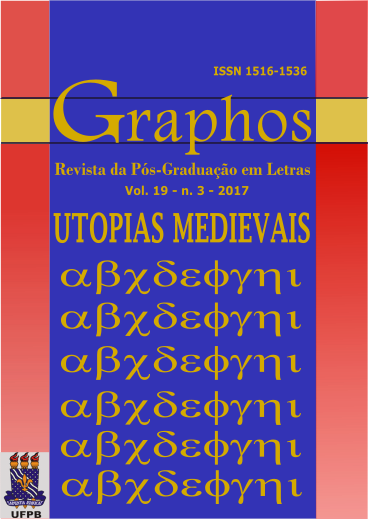Beatrice of Nazareth (1200-1268) and The seven ways of holy love
Keywords:
Desire, Love, KnowledgeAbstract
The Medieval Female Mysticism was developed between the XII and XIV Century, speaks with property about the God intimate knowledge: a union between the human and the divine merged in a mold unique. That can be read, according to Bataille, as sacred erotism, which express the idea of being part of the whole, since hat is in evidence always the descontinuity substituition of the being for a sentiment of deep continuity. This sentiment can be seen in Betriz of Nazareth (cisterciense nun, was born in Tirlemont, Belgium, 1200), when she thinks and live the plenitud divine: no limits, no objections, no intermediaries (sine medio), what we call ascesis of desire, thesis present throughout her book The Seven Manners of Love. Throughout her work, Beatriz is an authentic troubador of God, a proclaimer of divine, with concepts exceed the simple limits of reason. Therefore, in this paper, we intented to show the desire's experience in Beatrice of Nazareth as the absolute experience of the love (Minne). This experience demands an absolute annihilation of the soul (Lover) that seeks God (Love). Therewith, all the seven modes of the soul's journey being constituted in a true ascesis of desire, without however abandoning an erotic of the knowledge, observed from ideas of knowledge yourself and of God's knownledge.
Downloads
References
ARBLASTER, John & FAESEN, Rob. “The influence of Beatrice of Nazareth on Marguerite Porete: The Seven Manners of Love Revised. In: Cîteaux: Commentarii Cistercienses. Revue d’Histoire Cistercienne,fasc. 1-2, 2013, p. 41-88. https://lirias.kuleuven.be/handle/123456789/412675 [Acesso em 10 de Set.2016].
BEATRIZ DE NAZARET. Los siete modos de amor. Vidas y visiones. Trad. María Tabuyo, Barcelona: José J. de Olañeta, 2004, p. 35-63.
BERNARDO DE CLARAVAL. De diligendo Deo. “Deus há de ser amado”. Trad. Matteo Raschietti, Petrópolis: Vozes, 2010.
CIRLOT, Victoria e GARÍ, Blanca. La mirada interior. Escritoras místicas y visionarias en La edad media. Barcelona: Ediciones Martínez Roca, 1999. ÉPINEY-BURGARD, G. e BRUNN, Émile Zum. Mujeres trovadoras de Dios – Uma tradición silenciada de la Europa medieval. Trad. de A. López e M. Tabuyo. Barcelona: Paidós, 2007.
GUILHERME DE SAINT-THIERRY. De natura et dignitate amoris. In: Amour plurielles.
IMBACH, Ruedi e ATUCHA, Iñigo (Orgs.), Paris: Éditions du Seuil, 2006, p.32-49.
LACAN, Jacques. O Seminário: Livro 20, mais ainda. Trad. M. D. Magno. 2ª ed., Rio de Janeiro: Jorge Zahar Editor, 1985.
NOGUEIRA, Maria Simone Marinho. “Nicolau de Cusa e a Correspondência com os monges de Tegernsee”. In.: Anais... XIII Congresso Internacional de Filosofia Medieval, Vitória, Espírito Santo, Agosto, 1-4, 2011/ Autor: Comissão Organizadora do XIII Congresso Internacional de Filosofia Medieval/ Organizado por Jorge Augusto da Silva Santos e Ricardo da Costa. Vitória: DLL/UFES, 2013, p. 719-754.
RICHARD DE SAINT-VICTOR. De quattuor gradibus violentiae caritatis. In: Amour plurielles. IMBACH, Ruedi e ATUCHA, Iñigo (Orgs.), Paris: Éditions du Seuil, 2006, p.144- 159.
RUH, Kurt. Storia della Mistica Occidentale. Mistica femminile e mistica francescana delle origini. Trad. de Giuliana Cavallo-Guzzo. Milano: Vita e Pensiero, 2002.
SILESIUS, Johannes Angelus. Peregrino Querubínico o rimas espirituales: gnómicas y epigramáticas que conducen a la divina contemplación. Trad. Héctor A. Piccoli. Argentina: Ediciones Nieva Hélade, 2000 (www.bibliele.com/silesius).
TOSCANO, María e ANCOCHEA, Germán. Mujeres em busca del amado. Catorce siglos de místicas cristianas. Barcelona: Ediciones Obelisco, 2003.







